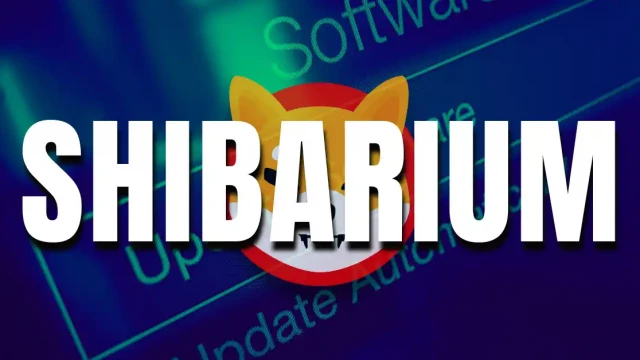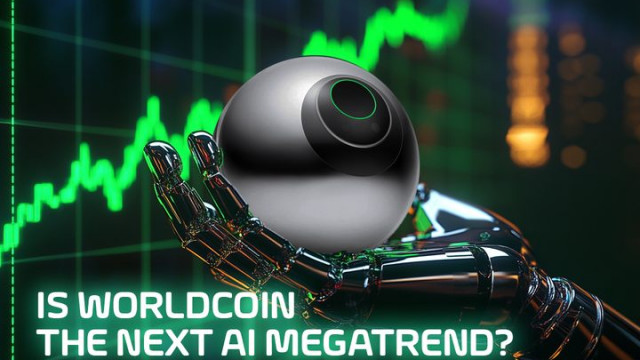Language
- English
- Română
Currency
- $ USD
- € EUR
- lei RON
- ₹ INR
- AUD
Worldcoin Rival Humanity Protocol Nets Funding from Polygon, Animoca Founders


More News Articles
Polygon and Pyse Electrify Dubai, Eye India's EV Boom
TL;DR Polygon and Pyse launch a model that tokenizes electric delivery motorcycles and monetizes their environmental and urban data on blockchain. The system rewards users with tokens based on the value of the data generated, which is later commercialized for logistics and insurance.
Polygon Overtakes Ethereum In The NFT Market
Polygon surprises the NFT market by surpassing Ethereum with a collection backed by physical assets. This performance marks a turning point in the industry, where the tokenization of real objects is increasingly attracting investors seeking tangible value and blockchain security.
Polygon and Pyse Bring Tokenized EV Fleets to Dubai, Eye India Expansion
With tokenized vehicles now live, Polygon and Pyse say India's EV market is ripe for blockchain-powered green infrastructure.
Polygon surpasses Ethereum: the new era of NFTs linked to real-world assets
In recent months, the world of NFTs has witnessed a significant evolution. If in the past the focus was mainly on digital art, today the focus is shifting towards tangible assets, and at the forefront of this transformation is Polygon, which has recently surpassed Ethereum in terms of weekly sales. According to the data from CryptoSlam updated as of April 22, NFTs on Polygon generated 22.1 million dollars in weekly sales, recording an increase of 17.64% compared to the previous week. In comparison, Ethereum stopped at 21.8 million, while Mythos Chain and Bitcoin totaled 14.3 million and 14.1 million respectively. This jump led Polygon to hold 24% of the global NFT transaction volume, out of a weekly total of 92.9 million dollars.
Polygon NFTs Overtake Ethereum with $22M Weekly Sales as Real World Asset Demand Surges
Polygon NFTs have generated $22.1 m in weekly volume, passing Ethereum and Bitcoin and attracting nearly 59 % more buyers. Courtyard's tokenized Pokémon and baseball cards illustrate how insured vault custody and burn‑to‑redeem options have strengthened confidence in hybrid real‑world‑asset models. The post Polygon NFTs Overtake Ethereum with $22M Weekly Sales as Real World Asset Demand Surges appeared first on Cryptonews.
POL just exploded; Bulls are in full control
POL (POL) bulls continue to drive the token's short-term rally that began on April 18, pushing the price higher and achieving double-digit percentage growth on the weekly timeframe.
Polygon NFT sales surpass Ethereum, driven by RWA-based Courtyard
Ethereum lost its spot as the top NFT platform from the first time, to its layer 2 Polygon.
Polygon NFTs overtake Ethereum collectibles in 7-day sales
Polygon-based non-fungible tokens (NFTs) took the top spot in digital collectible sales after surging 20% in the last seven days. On April 22, NFT data tracker CryptoSlam showed that Polygon NFTs overtook Ethereum, reaching a $22.3 million volume in the past week.
World Network's Chief Architect on Building a Human-First Internet
Adrian Ludwig, Chief Architect at Tools for Humanity (TFH), shared insights on the rapid development of the World Network—a system designed to create a network of verified humans using privacy-preserving technology, in an exclusive interview with BeInCrypto in Seoul.
A reversal ahead for Worldcoin's price after 20% rally? Maybe, IF
Worldcoin traders and investors should be cautious due to a few key reasons.
Here's why AI tokens FET, AIC, Render, WLD, TAI are soaring
Top artificial intelligence tokens were among the best performers this weekend, as investors bought the dip following a key report from CoinGecko. AI Companions (AIC) tokens jumped by over 40% to $0.
Polygon Rises At The Bottom Of The Chart, Targeting The High Of $0.215
Polygon's Ecosystem Token (POL) is rising in price after breaking above the 21-day SMA barrier.
QuickSwap Integrates StratEx, Bringing DeFAI to Polygon
Polygon's flagship DEX merges AI with DeFi to simplify complex tools and make them easily accessible.
TVL: A Headline Staple That Misses the Bigger Picture, Says Polygon's David Silverman
Total value locked (TVL) is a widely used metric to track the popularity, adoption, and overall health of decentralized finance (DeFi) projects. However, is it the most accurate reflection of a chain's true value?
Polygon's Nailwal: Jio partnership to drive real-world Web3 adoption for 450M users
As Polygon lays the groundwork for mainstream Web3 adoption in India by bringing blockchain access to over 450 million Reliance Jio users, it remains focused on balancing speed, scalability and affordability, without compromising on decentralization.Polygon is working with Jio, a telecom giant owned by India's richest man, Mukesh Ambani, to find ways to infuse blockchain technology into its existing services. The duo is currently adding blockchain-based capabilities to the JioSphere web browser, which would have been expensive, cumbersome and time-consuming via traditional methods.
Polygon Maintains Its Sideways Movement Below $0.20
Polygon's Ecosystem Token (POL) has halted its decline above the $0.15 support.
Polygon Labs' Marc Boiron on Unifying Blockchains
Marc Boiron, CEO of Polygon Labs, speaks with a practiced clarity that reflects his background as a lawyer. Over the course of our conversation, he outlines Polygon's strategy to position itself as the connective tissue in an increasingly crowded blockchain ecosystem.
Is Worldcoin's [WLD] 30% rally a prelude to ‘FOMO-driven' growth to $1?
A clean break above THIS threshold would likely validate a full-scale trend reversal.
Crypto Whales Bought These Altcoins in the Second Week of April 2025
Despite lingering market uncertainty fueled by Donald Trump's escalating trade war, the cryptocurrency market showed signs of recovery this week.
Shiba Inu: Shibarium's Daily Volume Crashes to Just $21K as Rivals Polygon & Base Soar!
With the growing competition in the blockchain ecosystem, Shiba Inu's Layer-2 blockchain, Shibarium, is struggling to keep up with its competitors as its daily trading volume plunges to only $21,000, far behind rivals like Polygon and Base. This raises concerns for Shiba Inu investors as traders seem to be shifting their focus elsewhere.
What's changed since Worldcoin rebranded to World Network?
Tiago Sada, chief product officer at Tools for Humanity, a key contributor to World, sits down with CNBC Crypto World to discuss Worldcoin's rebranding to the World Network. He also addresses privacy concerns tied to Worldcoin's controversial iris-scanning devices called Orbs.
Polygon Loses The Low Of $0.29 And Trends Downwards
Polygon's Ecosystem Token (POL) has started to experience additional selling pressure after failing to hold above the $0.20 support level.
Game Over for Polygon? Aavegotchi Moves to Base with 93% Support
Aavegotchi, a project that combines non-fungible tokens (NFTs) and Web3 gaming, has chosen to stop using Polygon MATIC and move to Base, an Ethereum ETH Layer-2 network.
Gaming NFT maker Aavegotchi votes to ditch Polygon for Base
Aavegotchi, a non-fungible token (NFT) protocol focused on Web3 gaming, has opted to abandon blockchain network Polygon and “go all-in” on Base, an Ethereum layer-2 scaling chain, according to the results of an onchain vote. On April 8, Aavegotchi's community members voted 93.5% in favor of a proposal to “Make Aavegotchi Based Again” by deprecating the protocol's smart contracts on Polygon and re-deploying on Base, according to Aavegochti's governance page.
DeFi Game Aavegotchi to Abandon Polygon, Migrate to Coinbase's Base
The move follows sharp drops in user activity and total value locked on Polygon as Base's usage climbs
Aavegotchi DAO Approves Migration From Polygon to Base Amid Ecosystem Cuts
TL;DR The Aavegotchi community approved, with over 95% support, the migration from Polygon to Base and the deactivation of the Geist contract. All game assets will be duplicated on Base, while contracts on Polygon will be locked to prevent changes or transfers.
Aavegotchi NFT gaming community votes to migrate to Base, sunset Polygon deployment
The Aavegotchi community has voted to migrate from its existing deployment on Polygon to Base and sunset its Geist Layer 3.
Is Worldcoin the Next AI Megatrend? ChatGPT Surge Triggers 4% Bounce
Worldcoin briefly surged 4% following the release of ChatGPT's new image-generation tool, thanks to their shared link via Sam Altman. However, with bearish indicators and ongoing regulatory scrutiny, WORLD risks hitting a new all-time low. The post Is Worldcoin the Next AI Megatrend? ChatGPT Surge Triggers 4% Bounce appeared first on Cryptonews.
Polygon Holds Above $0.19 As Traders Are Uncertain
Polygon's Ecosystem Token (POL) is stabilizing above the $0.19 low after breaking above the previous low of $0.29.
AI Coins Rebound as OpenAI's $40B Raise Sparks Fresh Momentum
Artificial intelligence (AI)-linked cryptocurrencies climbed sharply on Tuesday after OpenAI secured a $40 billion capital injection from Japan's Softbank, Microsoft, and other investors. With this latest round, OpenAI's valuation now stands at $300 billion.
Crypto Market Cycle Permanently Shifted, Says Polygon Founder Sandeep Nailwal
The traditional four-year crypto market cycle, once closely tied to Bitcoin halving events, is no longer as predictable as it once was.
Worldcoin traders, here's why a 20% price gain is likely this week!
Selling pressure on Worldcoin over the past three days might ease, giving the chance for a 20% price hike.
The Crypto Market No Longer Follows Its Classic Cycles According To The Founder Of Polygon
The halving, once the war drum of the bull market, has fallen silent. In the silence, Bitcoin seeks a new rhythm in a crypto market that dances differently.
Top 3 Cryptocurrencies Whales Bought This Week
Crypto whales bought Optimism (OP), Dogecoin (DOGE), and Worldcoin (WLD) in recent days. OP saw a rise in large holders despite being down 73% over the past year, while DOGE whale wallets climbed to a two-week high as meme coin sentiment shows signs of recovery.
Crypto market cycle permanently shifted — Polygon founder
The four-year crypto market cycle that traders and investors have become accustomed to is no longer as pronounced due to the maturation of crypto as an asset class and the participation of institutional investors, according to Polygon co-founder Sandeep Nailwal.During a recent episode of Cointelegraph's Chain Reaction, Nailwal said that Overall speculative activity is down due to high interest rates in the United States and low-liquidity conditions, but will rebound once rates are cut and the Trump administration settles into its new role. Although interest rates on 10-year Treasury bonds have come down significantly, rates still remain relatively high.
World Network and the possible partnership with Visa: new features for self-custody crypto wallets
World Network, the project linked to Sam Altman and Tools for Humanity, is in negotiations with Visa to integrate new features into its self-custody crypto wallets. This collaboration could revolutionize access to digital payments on a global scale, leveraging Visa's network and the potential of blockchain technology. The former Worldcoin, now renamed World Network, is considering a collaboration with Visa to integrate payment functionalities based on stablecoin and cards into a new crypto wallet system. According to CoinDesk, which cites a source close to the negotiations, the goal is to create an accessible and secure financial ecosystem, with the possibility of using digital assets directly on Visa circuits.
Polygon's short-term momentum faces strong resistance HERE – What next?
The strong gains in the past two and a half days meant that POL had a bullish structure on the 4-hour timeframe.
Polygon price wedge points to more gains as addresses jump
Polygon price has crawled back in the past few days as the number of active addresses on the chain rises. Polygon (POL) rose to an intraday high of $0.
CoinDesk 20 Performance Update: Polygon (POL) Gains 7.4%, as Index Trades Flat
Sui (SUI) was also a top performer, gaining 6% from Tuesday.
Polygon Recovers And Crosses The $0.22 Level
The price of Polygon's Ecosystem Token (POL) rises again after retesting $0.190. It now rises to $0.29, the altcoin's lowest price.
Worldcoin In Talks With Visa To Integrate Card Features Into Its Crypto Wallet
Sam Altman's Worldcoin is allegedly discussing options to join forces with Visa. The goal is to develop the World wallet into a full-blown financial service.
Tokenized real estate trading platform launches on Polygon
Real-world asset (RWA) tokenization platform DigitShares is bringing tokenized real estate trading to Polygon with the launch of RealEstate.Exchange, also known as REX.According to a March 25 announcement, REX is designed to offer retail investors a compliant venue for fractional property investments in a secondary market, potentially addressing the industry's existing liquidity constraints. As Cointelegraph explained, secondary RWA trading platforms provide liquid off-ramps for investors looking to cash out of their holdings.
Visa May Develop Crypto Wallet for Worldcoin Ecosystem
The proposed World Wallet will integrate stablecoin payments and on-chain card features. This will allow users to make payments across Visa's global network.
Worldcoin: How Visa could help WLD surpass $1
WLD potential partnership with VISA could revolutionize stablecoin payments. If successful, it may drive adoption, enhance WLD's value, and reshape the crypto-finance landscape.
Worldcoin Price Rises 10% As World Network Eyes Visa Partnership for Payments
Worldcoin's price has surged by 10% as discussions between its parent company, World Network, and payment giant Visa take center stage. The potential collaboration could significantly reshape the landscape of digital payments, allowing users to make stablecoin payments through Visa's expansive network.
Report Claims Visa and World Network in Talks to Merge Crypto Wallets With Card Payments
Sam Altman's World Network is allegedly in discussions with Visa to integrate stablecoin payment capabilities into its self-custody crypto wallet, according to an unnamed source speaking with Coindesk's Ian Allison. This collaboration aims to incorporate Visa card functionality into World Network wallets, enabling users to conduct stablecoin transactions with merchants across Visa's global network.
World Network in Talks with Visa to Launch Stablecoin Payments Wallet
According to reports, World Network is in talks with Visa to launch a new stablecoin wallet. This would integrate crypto-native features into Visa's massive customer base.
Report: Sam Altman's World Network Discusses Adding Visa Card Functionality
World Network, the organization co-founded by Sam Altman that is part of the blockchain-based ecosystem that includes Worldcoin, is reportedly in talks with Visa to add on-chain card features to the organization's self-custody cryptocurrency wallet.







































































